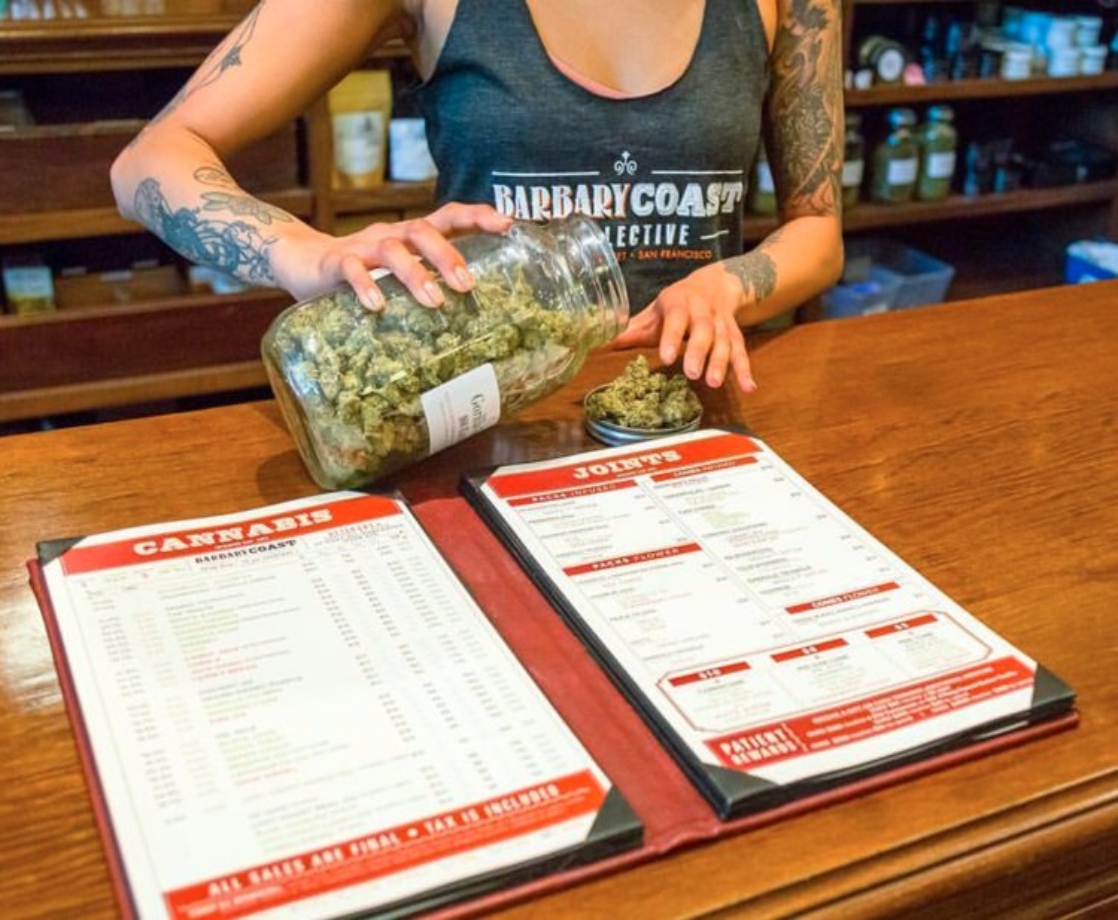A San Francisco-based immigration clinic is posting warning signs on Bay Area dispensaries. The signs caution immigrants and non-citizens from working in the licensed weed industry.
The signs read: “Warning: If you are not a U.S. citizen, it may be legally dangerous for you to work in the marijuana industry,” according to the San Francisco Chronicle.
Working in cannabis for non-citizens, documented or otherwise, is currently grounds for citizenship denials, denials for re-entering the US, indefinite detentions, or deportations. Although 11 states have legalized marijuana for recreational use, it remains illegal at the federal level — and immigration is regulated by the federal government.
Immigration attorneys suggest that non-citizens abstain from working for cannabis businesses, even in states where weed is legal, for at least five years before applying for citizenship.
“Immigrants are caught in the middle, often unknowingly,” Bill Hing, a law professor and co-director the University of San Francisco’s Immigration and Deportation Defense Clinic, told the San Francisco Chronicle. “They think, ‘I have permission to work, here’s a job that’s legal in California,’ and they take it. They could very well be falling into a federal trap.”
Gallery — Photos of Cops Smoking Weed:
How does this federal trap work? Federal law enforcement agencies have, for the most part, stayed away from state-legal cannabis businesses that comply with the state’s pot laws. Officials with the US Citizenship and Immigration Services (USCIS) — the agency responsible for deciding who can become a US citizen and who can’t — can deny citizenship to any applicant without evidence of a marijuana-related charge or conviction. They only need the applicant to answer a specific way to a specific question.
“You are asked, ‘Have you ever used illegal drugs,’ and you say, ‘No, just marijuana,’” Zachary Nightingale, an immigration attorney, said to the San Francisco Chronicle. “Did you possess marijuana in the state? If you say ‘yes,’ you’re automatically disqualified for five years.”
The easy way around this? Don’t answer yes to any questions related to drugs, and don’t even mention weed. If you’re a non-citizen who happened to file taxes for a weed-related job, USCIS does not share a database with the IRS, so USCIS depends on the applicant’s self-reported answers, not tax filings.
The day before this year’s holidaze of 4/20, USCIS clarified its anti-weed policy on Twitter, claiming that migrants who worked in cannabis, essentially, lacked “good moral character.”
“I think it’s laughable,” said Elizabeth Ricci, a Florida-based attorney. “We have people working in pharmacological labs, producing opioids, and they’re not considered controlled substances [under federal law]. Here, people working legally want to be US citizens, and yet they’re told, ‘Poor moral character.’”
President Trump has expressed support for states’ rights when it comes to the issue of weed legalization. Paradoxically, his administration has also exploited federal drug laws to justify its racist and xenophobic campaign against immigrants — legal and otherwise — with the latest move including denying citizenship to applicants who’ve accessed social services such as food stamps or housing vouchers.
Since Trump took office in 2017, ICE detention centers have detained over 52,000 individuals and 900 families, the agency’s all-time high since it formed in 2003. Last week, a federal judge ruled that Trump’s ban on asylum seekers was illegal.
Follow Randy Robinson on Twitter











